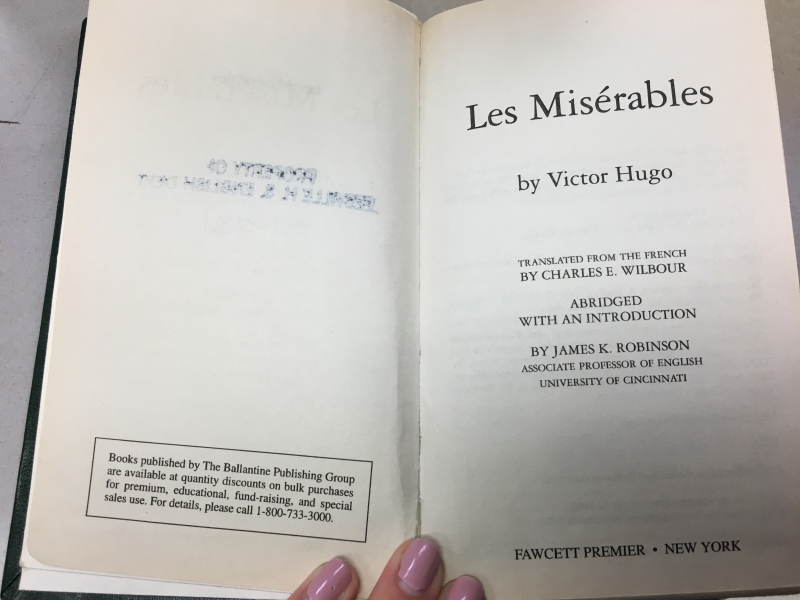Les Miserables

In "Les Miserables", the protagonist is an escaped prisoner named Jean Valjean, who is committed to putting his criminal background behind him. But his efforts to turn into a respectable member of the society are repeatedly thwarted: by his own guilt when, due to an instance of mistaken identification, another man is punished in his place; and by the persistent investigations of Inspector Javert. Valjean must remain free not just for himself, but also to safeguard Fantine's daughter, who has been forced into prostitution by poverty.
Les Miserables contains many similarities with "Bleak House" by Charles Dickens and other social satire books. Hugo, like Dickens, vehemently voiced his concern for poor people. In addition, he leaned into his political soapbox, ranting about absolute monarchy and Napoleonic themes that were of tremendous significance in his day but are now only cemented over the narrative's antiquated style.
Hugo also enjoyed demonstrating his historical knowledge, as seen by the several chapters dedicated to the histories of Parisian nunneries, the Waterloo battle, and the urban topography of Paris. With all these fascinating facets combined, Les Miserables is one of the best novels set in Paris.
Author: Victor Hugo
Year of Release: 1862
Goodread Scores: 4.19 stars (from 738,563 reviews)






